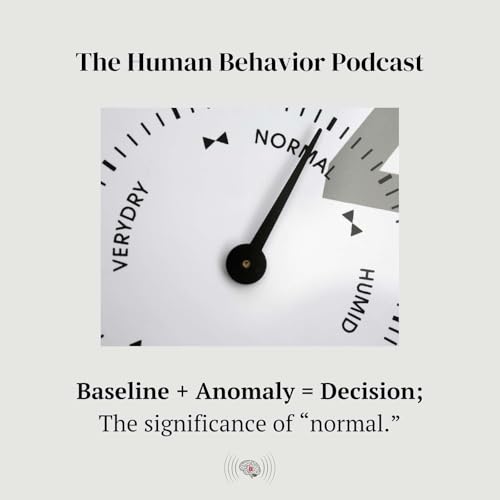
The Human Behavior Podcast
Failed to add items
Sorry, we are unable to add the item because your shopping cart is already at capacity.
Add to basket failed.
Please try again later
Add to Wish List failed.
Please try again later
Remove from Wish List failed.
Please try again later
Follow podcast failed
Unfollow podcast failed
-
Narrated by:
About this listen
Do you ever wonder why people act the way that they do? Join human behavior experts Brian Marren and Greg Williams as they discuss all things human behavior related. Their goal is to increase your Advanced Critical Thinking ability through a better understanding of HBPR&A (Human Behavior Pattern Recognition & Analysis.) What is HBPR&A? It's a scientific (and fun) way to understand and articulate human behavior cues so that you can predict likely outcomes and it works regardless of your race, religion, political ideology or culture!
© 2025 The Human Behavior Podcast
Episodes
-
 Nov 18 20251 hr and 12 mins
Nov 18 20251 hr and 12 minsFailed to add items
Sorry, we are unable to add the item because your shopping cart is already at capacity.Add to basket failed.
Please try again laterAdd to Wish List failed.
Please try again laterRemove from Wish List failed.
Please try again laterFollow podcast failed
Unfollow podcast failed
-
 Nov 10 20251 hr and 9 mins
Nov 10 20251 hr and 9 minsFailed to add items
Sorry, we are unable to add the item because your shopping cart is already at capacity.Add to basket failed.
Please try again laterAdd to Wish List failed.
Please try again laterRemove from Wish List failed.
Please try again laterFollow podcast failed
Unfollow podcast failed
-
 Oct 22 20251 hr and 4 mins
Oct 22 20251 hr and 4 minsFailed to add items
Sorry, we are unable to add the item because your shopping cart is already at capacity.Add to basket failed.
Please try again laterAdd to Wish List failed.
Please try again laterRemove from Wish List failed.
Please try again laterFollow podcast failed
Unfollow podcast failed
No reviews yet
In the spirit of reconciliation, Audible acknowledges the Traditional Custodians of country throughout Australia and their connections to land, sea and community. We pay our respect to their elders past and present and extend that respect to all Aboriginal and Torres Strait Islander peoples today.


